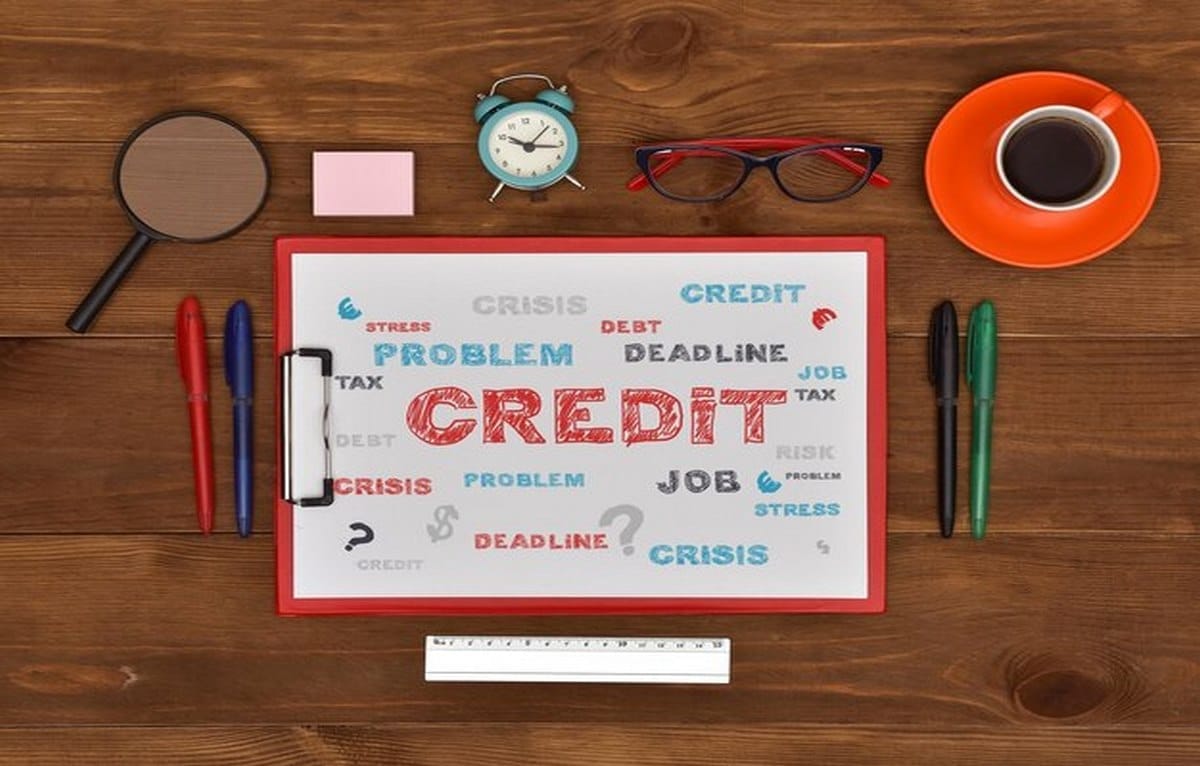Explanation and Importance of Credit Limits Credit limits represent the maximum amount a lender allows you to borrow on a credit account. They serve as a crucial financial tool, guiding responsible borrowing and spending. A well-managed credit limit helps build a robust credit history, influencing future borrowing power.

How Credit Limits Affect Your Financial Health
Credit limits significantly impact your financial health. A higher limit can improve your credit utilization ratio, a key factor in credit scoring. By keeping your balance low relative to your limit, you demonstrate creditworthiness, potentially leading to better loan terms and interest rates.
Why Request a Credit Limit Increase?
Benefits of a Higher Credit Limit
Increasing your credit limit can provide multiple advantages. It enhances your purchasing power, offers a financial cushion for emergencies, and can lower your credit utilization ratio. This, in turn, may boost your credit score, opening doors to better financial opportunities.
Potential Risks of Increasing Your Credit Limit
While a higher credit limit offers benefits, it also poses risks. The temptation to overspend can lead to increased debt and financial strain. Moreover, frequent credit limit requests may result in hard inquiries, temporarily affecting your credit score.
Factors to Consider Before Requesting
Your Current Credit Score
Your credit score is a critical determinant in the approval of a credit limit increase. Higher scores generally signify reliability to lenders, increasing the likelihood of approval.
Your Payment History
Consistent, on-time payments enhance your credibility. Lenders view a spotless payment history as a sign of financial responsibility, which bodes well for your request.
Your Income and Employment Status
Stable income and employment status are essential considerations. Lenders prefer borrowers with steady income, ensuring they can manage increased credit limits.
Your Existing Debt Levels
High existing debt can be a red flag. Lenders may hesitate to increase your limit if you’re already heavily indebted, fearing potential default.

When Not to Request a Credit Limit Increase
During Major Financial Instability
Requesting a credit limit increase during financial instability can be detrimental. Lenders may perceive you as a higher risk, reducing the chances of approval.
After Recent Credit Limit Changes
Frequent limit changes may signal financial uncertainty. It’s prudent to wait before requesting another increase to avoid appearing desperate or financially unstable.
If Your Credit Score is Low
A low credit score diminishes your chances of approval. Focus on improving your score before making the request to increase your likelihood of success.
Optimal Times to Request a Credit Limit Increase
After a Significant Increase in Income
A substantial income boost positively impacts your creditworthiness. It’s an ideal time to request a higher limit, as lenders will view you as more capable of managing additional credit.
After Consistently Paying Off Balances
Demonstrating a pattern of paying off balances showcases financial discipline. Lenders are more likely to approve your request, seeing you as a low-risk borrower.
Following a Positive Credit Report Update
Improvements in your credit report, such as a higher score or cleared derogatory marks, enhance your credit profile. These updates create an opportune moment to request a limit increase.

Seasonal Considerations for Credit Limit Increases
End of Financial Quarters
Lenders may be more accommodating at the end of financial quarters. They often aim to meet targets and might be more inclined to approve credit limit increases during these periods.
Post-Tax Season
After tax season, many individuals see changes in their financial status. It’s a favorable time to request an increase, as lenders might consider your post-tax financial stability.
During Economic Stability
Economic stability fosters a favorable lending environment. Requesting a credit limit increase during such times may increase your chances of approval due to overall financial confidence.
How to Prepare for a Credit Limit Increase Request
Reviewing Your Credit Report
A thorough review of your credit report helps identify any discrepancies or issues. Rectifying these before your request can improve your credit profile.
Paying Down Existing Debts
Reducing your current debt levels showcases financial prudence. It also lowers your credit utilization ratio, making your request more attractive to lenders.
Gathering Proof of Income
Providing evidence of your income, such as pay stubs or tax returns, substantiates your financial capability. This documentation is crucial in convincing lenders of your creditworthiness.
How to Request a Credit Limit Increase
Contacting Your Credit Card Issuer
Directly reaching out to your credit card issuer is a straightforward approach. Discuss your request with a representative, emphasizing your positive credit behavior and financial stability.
Using Online Banking Platforms
Many banks offer online platforms for credit limit increase requests. This method is convenient and allows you to submit necessary documentation digitally.
Preparing for Possible Follow-Up Questions
Lenders might ask follow-up questions regarding your financial situation. Be prepared to provide detailed answers to enhance your chances of approval.
What to Do If Your Request is Denied
Understanding the Reasons for Denial
Comprehending why your request was denied is essential. It helps you address the issues and improve your chances of success in the future.
Steps to Improve Your Credit Profile
Focus on enhancing your credit profile by improving your credit score, reducing debt, and maintaining a spotless payment history. These steps will strengthen your case for future requests.
Reapplying at a Later Time
After addressing the reasons for denial, consider reapplying. Demonstrating improved financial health can increase the likelihood of a successful request.
Monitoring Your Credit After an Increase
Keeping Track of Your Credit Score
Regularly monitor your credit score to ensure it remains healthy. This vigilance helps you manage your credit effectively and avoid potential pitfalls.
Managing Your Spending Habits
A higher credit limit requires disciplined spending. Avoid the temptation to overspend and maintain a budget to ensure financial stability.
Avoiding the Pitfalls of a Higher Credit Limit
Be aware of the risks associated with a higher credit limit. Responsible management is key to leveraging the benefits without falling into debt traps.
Alternative Strategies to Increase Credit Access
Applying for a New Credit Card
A new credit card can provide additional credit access. Choose cards that align with your financial needs and offer favorable terms.
Seeking a Co-Signer
A co-signer with a strong credit profile can help you access higher credit limits. Ensure the co-signer understands the responsibilities involved.
Exploring Personal Loans
Personal loans are another avenue to increase credit access. They can provide lump sums for specific needs, often with fixed interest rates.
Impact of Credit Limit Increase on Credit Score
Short-Term Effects
Initially, a credit limit increase might result in a temporary dip due to hard inquiries. However, the overall impact is typically positive if managed well.
Long-Term Benefits
Over time, a higher credit limit can improve your credit utilization ratio, boosting your credit score. This enhancement opens doors to better financial opportunities.
Common Misconceptions About Credit Limit Increases
Myths vs. Facts
Dispel common myths about credit limit increases, such as the belief that they always harm your credit score. Understanding the facts helps you make informed decisions.
Clarifying Common Doubts
Addressing common doubts about credit limit increases ensures you’re well-informed. This clarity aids in making sound financial choices.
Expert Tips for Successfully Increasing Your Credit Limit
Insider Secrets from Financial Advisors
Financial advisors offer valuable insights into successfully increasing your credit limit. Leverage their expertise to enhance your financial strategy.
Real-Life Success Stories
Learn from real-life success stories of individuals who have effectively increased their credit limits. Their experiences provide practical tips and motivation.
Legal Considerations and Consumer Rights
Understanding Your Rights Under the Fair Credit Reporting Act
Familiarize yourself with your rights under the Fair Credit Reporting Act. This knowledge empowers you to challenge inaccuracies in your credit report.
How to Dispute Errors on Your Credit Report
Disputing errors on your credit report is crucial. Follow the appropriate steps to correct discrepancies and improve your credit profile.
Future Trends in Credit Limit Management
Emerging Practices in the Credit Industry
Stay informed about emerging practices in the credit industry. Adapting to these trends ensures you’re ahead in credit management.
How to Stay Ahead in Credit Management
Proactive credit management is key to financial success. Implementing best practices keeps you well-prepared for future credit needs.
BOTTOM LINE
Summarizing Key Points
In summary, understanding the best time to request a credit limit increase involves careful consideration of various factors. Proper timing, preparation, and management are crucial.
Encouraging Smart Financial Decisions
Make informed financial decisions by leveraging the insights provided. Responsible credit management leads to long-term financial health and stability.
Frequently Asked Questions
How to Get a High Credit Card Limit?
To get a high credit card limit, maintain a good credit score by making timely payments, keeping your credit utilization low, and demonstrating stable income and employment. Regularly review and correct any inaccuracies on your credit report. Building a positive credit history over time also helps in securing higher credit limits.
Source: Experian
What is the Average Credit Limit?
The average credit limit varies depending on the credit card issuer and the cardholder’s credit profile. Generally, the average credit limit ranges from $3,000 to $10,000. High credit scores and strong financial profiles often lead to higher average limits.
Source: NerdWallet
Can I Add Money to My Credit Card to Increase the Limit?
Adding money to your credit card account does not increase your official credit limit. However, it can temporarily increase your available credit by reducing your current balance. To officially increase your credit limit, you need to request a limit increase from your credit card issuer.
Source: CreditCards.com
Does Increasing Credit Limit Credit Score?
Increasing your credit limit can positively affect your credit score by lowering your credit utilization ratio, which is the percentage of your available credit that you are using. A lower credit utilization ratio is viewed favorably by credit scoring models, potentially boosting your credit score.
How Much Credit Limit Should I Have Based on Income?
Your credit limit should ideally be proportional to your income and financial responsibilities. A common guideline is that your total credit limit across all cards should be around 20-30% of your annual income. This ensures you have sufficient credit while managing your debt-to-income ratio effectively.
Source: Bankrate
Is It Good to Increase Credit Limit?
Increasing your credit limit can be beneficial as it improves your credit utilization ratio, which can boost your credit score. It also provides additional financial flexibility for emergencies or large purchases. However, it requires disciplined spending to avoid accumulating excessive debt.
What Should I Say When Asking for a Credit Limit Increase?
When asking for a credit limit increase, emphasize your positive payment history, stable income, and responsible credit management. Clearly state your reasons for needing a higher limit, such as anticipated large purchases or improved financial stability. Be polite and confident in your request.
Source: Credit Karma
How Long Before Credit One Increases Credit Limit?
Credit One Bank typically reviews accounts for credit limit increases every six months. However, the exact timing can vary based on your account activity, payment history, and overall credit profile. Regular responsible use of your card can expedite the review process.
Source: Credit One Bank
How Many Days Does It Take to Increase Credit Limit?
The time it takes to increase your credit limit varies by issuer. Some credit card companies can approve and implement a credit limit increase within a few minutes if requested online or over the phone. Others might take several business days to process the request and notify you of their decision.
Source: The Balance
How Much Should I Request to Increase My Credit Limit?
When requesting a credit limit increase, a good rule of thumb is to ask for an increase of 10-25% of your current limit. This amount is typically viewed as reasonable by lenders and minimizes the risk of denial. Be prepared to justify your request based on your financial situation and credit history.
Does Requesting a Credit Limit Increase Hurt Score?
Requesting a credit limit increase can result in a hard inquiry on your credit report, which might temporarily lower your credit score by a few points. However, if approved, the resulting lower credit utilization ratio can positively impact your score over time.
Source: TransUnion
How Long Should I Wait to Ask for Credit Increase Capital One?
For Capital One, it’s generally recommended to wait at least six months between credit limit increase requests. This timeframe allows you to establish a pattern of responsible use and payments, which can improve your chances of approval.
Source: Capital One
How Can I Boost My Credit Score Fast?
To boost your credit score quickly, pay down existing debts to lower your credit utilization ratio, ensure all payments are made on time, and dispute any inaccuracies on your credit report. Additionally, avoid opening new credit accounts or making large purchases that could increase your debt.
Source: CNBC









